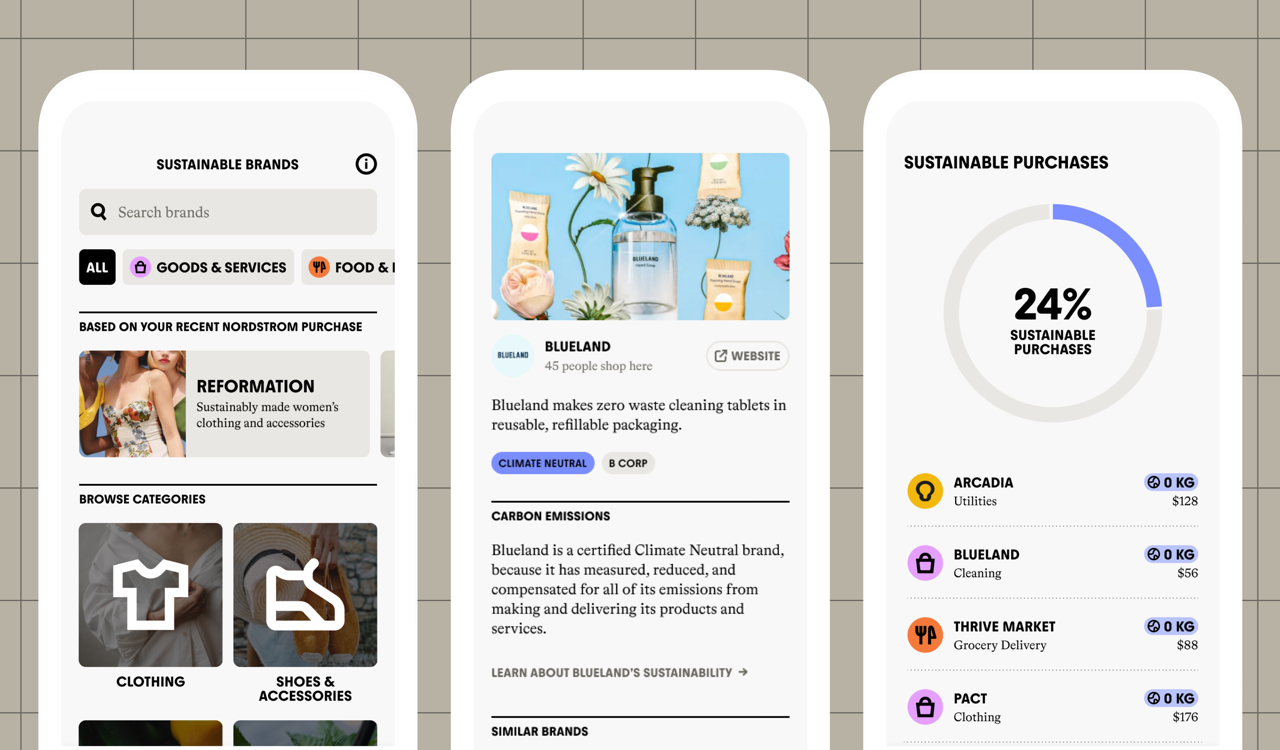Carbon Footprint App Commons Shows Small Climate Decisions Add Up
Shifting purchases to more sustainable brands can add up to a big impact.

If tracking carbon emissions as a Fortune 500 company is hard, what hope do small businesses or individuals have? More than you might think.
Commons, a carbon footprint app available on mobile devices, is proving that carbon accounting is within reach for the masses. By looking at users’ spend data, the app can help consumers track their carbon footprints and make more informed decisions to ultimately improve their climate impact.
Meanwhile, other businesses can learn from Commons how acting with the environment in mind can win over more customers and how taking steps in the right direction, regardless of your size, can make a difference.
